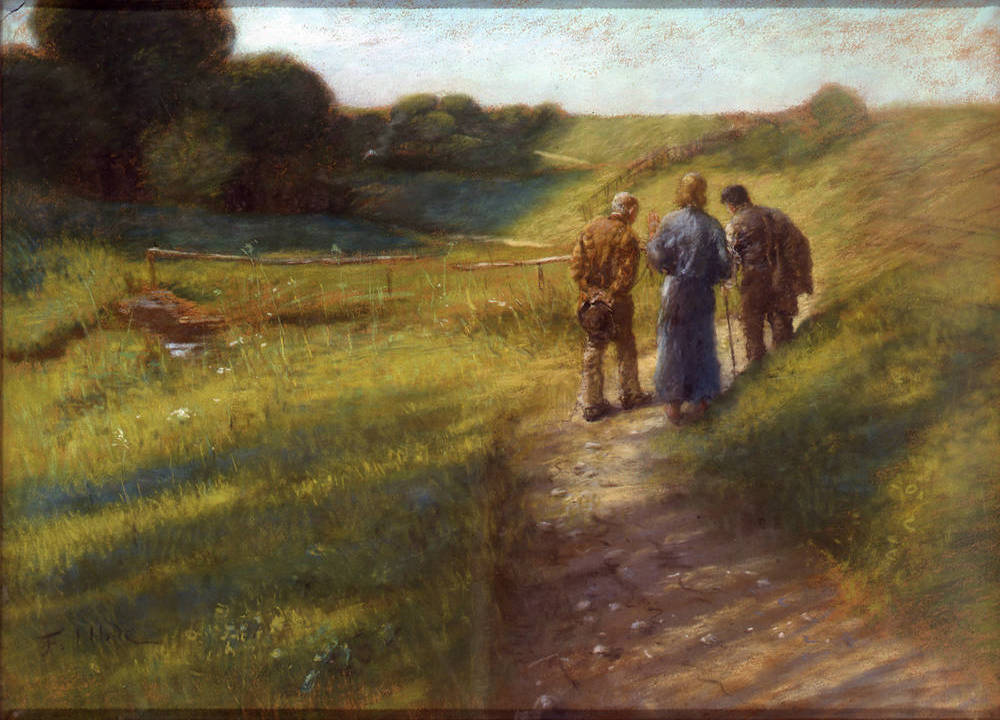
Ite Missa Est – the final words of dismissal at the end of the Mass are usually translated as ‘Go, the Mass is ended’. It can literally mean, Go, it has (you have) been sent. Sending forth the faithful to proclaim the Good News is the most important outcome of the Eucharistic liturgy. The word Apostle means ‘the one who is sent’. As believers in Christ, we are all sent forth (Apostles) to proclaim the Good News to the world. The message of the proclamation is very simple and straight forward – The Lord has Risen, he is alive and is with us.
In this Sunday’s gospel, the two disciples met Christ on their way to Emmaus. They recognized Jesus, their Lord, only at the breaking of the bread. While Jesus was speaking to them and explaining the scripture, their hearts were burning within them. The moment they experienced Jesus, in the breaking of the bread, they got up and came back to Jerusalem to proclaim the News. They had a long journey, they were tired and it was night but on that late evening with the breaking of the Word and at the breaking of the Bread, they were transformed from within and were made apostles – they became the ones who were sent.
Luke writes this gospel around 80 A D. Here, the Evangelist is presenting a catechetical explanation to all the believers. Luke is telling them how to find the Risen Lord in their lives. The early church gathered together to celebrate Eucharist (Breaking of the Bread) on every Sunday. It was an important day for them, for on this day the Lord was Risen. In essence, what happened at Emmaus is the first Eucharist. There was liturgy of the Word with a homily which was followed by the breaking of the bread and finally the act of sending forth – Ite Missa Est.
Actually, all three readings today were meant to help the newly baptised get into the heart of Christian life. Peter tells them that they can now call God ‘Father’, because they have received from Him new life. They were slaves of sin and now they have received the freedom to be the children of God. Jesus, the new and perfect ‘Paschal Lamb’, has paid for their freedom by his blood on the cross and so Peter urges all the baptised to live a holy life worthy of Jesus’ sacrifice.
Christ’s sacrifice brings meaning to our own lives. Grace Udodong, one of our parishioners, in her book ‘Valley of Beautiful Whispers” explains how she struggled to make sense of suffering. Being brought up in the ‘evangelical church’, she thought her suffering was a lack of blessings from God, whom she always sought. She had to relearn her understanding of Scripture like the two disciples at Emmaus. Jesus explained to the travellers the meaning and purpose of His suffering and death. Grace’s desire to make meaning of her suffering brought her to the Eucharistic table. She was received into the Catholic community on Easter 2019. Now through her own little ways, especially through her writings, she proclaims the Good News – ‘Jesus is Risen, and He is with us’.
-Fr. Ranjan D’Sa, OCD

